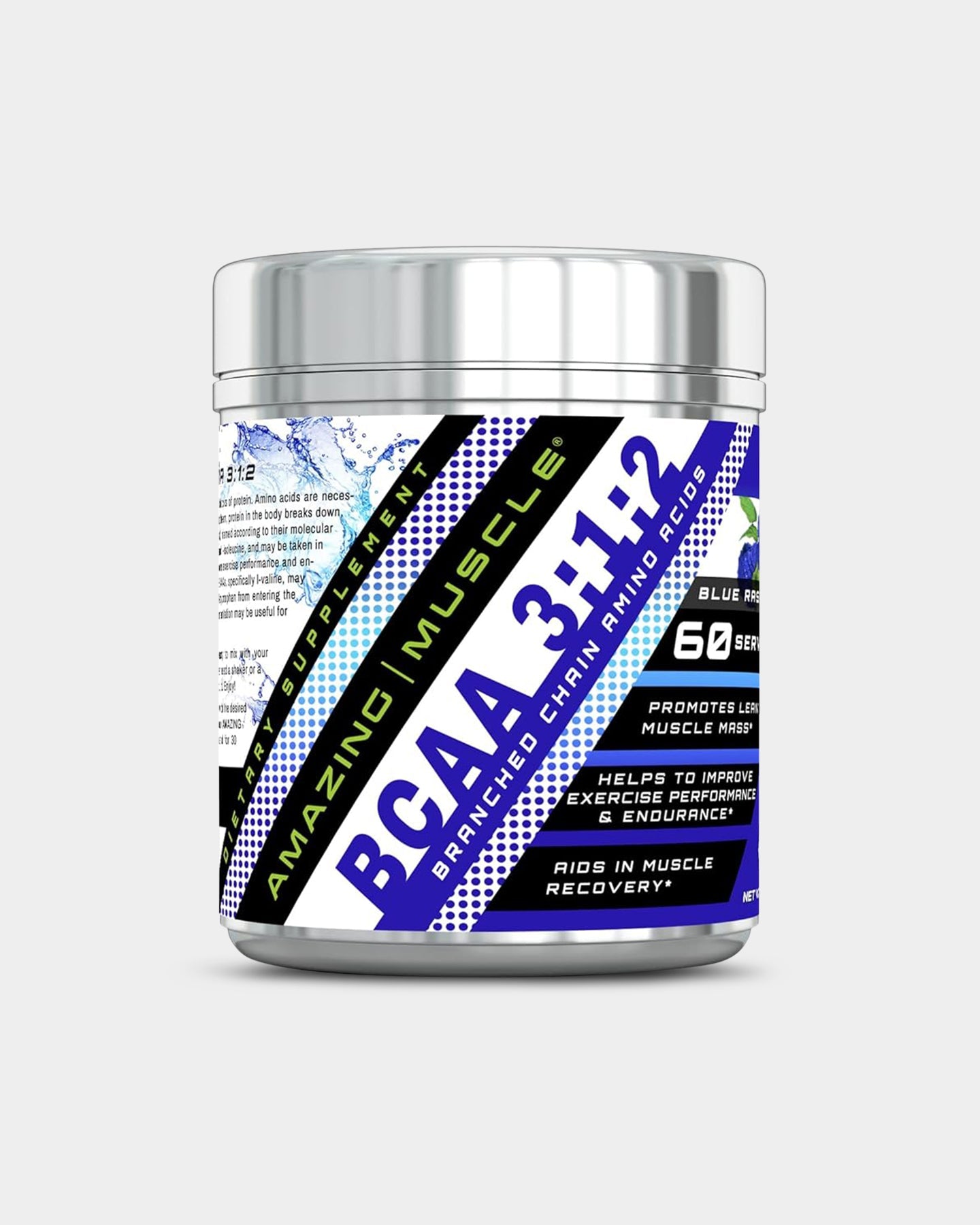Effective Ways to Use BCAA for Improved Recovery in 2025
Branched-Chain Amino Acids (BCAAs) have gained immense popularity among athletes and fitness enthusiasts for their role in muscle recovery and performance enhancement. Understanding how to effectively use BCAAs can greatly improve your recovery time post-workout, making them an invaluable addition to any training program. In this article, we will explore essential insights into BCAAs, their benefits, optimal dosages, and effective strategies for incorporating them into your nutrition plan. Whether you’re engaged in weight training, endurance sports, or seeking weight management solutions, the information you find here could shape your fitness journey in 2025 and beyond.
Additionally, BCAAs are known for their properties in supporting muscle growth, enhancing exercise performance, and contributing to sustained energy levels during workouts. This article will guide you on how BCAAs can be a key part of your post-exercise recovery protocol. With expert recommendations and practical examples, you’ll be equipped with knowledge to maximize your fitness recovery process through BCAA supplementation.

Essential Guide to BCAA Benefits for Recovery
Building on the fundamentals of BCAA knowledge, it’s crucial to understand the specific advantages that these amino acids offer for recovery. BCAAs, consisting of leucine, isoleucine, and valine, play a pivotal role in muscle metabolism. They are known to reduce muscle soreness, prevent muscle breakdown, and enhance muscle protein synthesis.
Understanding the Role of BCAAs in Muscle Repair
The amino acids found in BCAAs are integral to the muscle repair process post-exercise. After an intense workout, muscle fibers undergo stress and micro-tears, necessitating quick recovery to maintain performance. BCAAs stimulate the production of muscle-building proteins, aiding in faster recovery and reducing the chances of injury. This is particularly beneficial for athletes engaged in rigorous training routines, as efficient muscle repair can lead to improved overall performance.
BCAAs and Enhanced Performance
For athletes, enhancing performance is paramount. Research suggests that BCAA supplementation may help maintain endurance during prolonged exercise. By providing an energy source for working muscles, they can delay fatigue, allowing athletes to push through tougher workouts. This is particularly advantageous in endurance sports, where maintaining high performance for extended periods is crucial.
Reducing Muscle Soreness with BCAAs
One of the most sought-after benefits of BCAAs is their ability to mitigate delayed onset muscle soreness (DOMS). By reducing the muscle damage experienced after strenuous exercise, BCAAs can help athletes recover more quickly and effectively. This decrease in soreness can contribute to a more consistent training regimen, as individuals feel less hindered by pain in subsequent workouts.
Incorporating BCAAs into Your Diet
To maximize the effectiveness of BCAAs, integrating them into a balanced diet is essential. Whether through supplements, powder, or natural food sources rich in protein, these amino acids can easily fit into various dietary plans. Additionally, understanding the best times to consume BCAAs can further enhance their benefits for recovery.
The Impact of BCAAs on Muscle Growth
BCAAs are also linked to positive effects on muscle growth through their ability to activate certain pathways in muscle protein synthesis. This growth is particularly significant when combined with resistance training, making them a favorite among bodybuilders and strength athletes. By including BCAAs in a post-workout nutrition plan, athletes can support their aims for muscle mass increases effectively.
How to Effectively Integrate BCAAs into Your Routine
With these basics established, understanding the practical approaches to integrating BCAAs into your fitness lifestyle is crucial. From choosing the right products to determining optimal dosages, this section will help you streamline your BCAA use for improved recovery.
Choosing the Right BCAA Product
When selecting a BCAA supplement, it’s essential to consider the product’s quality, the ratio of amino acids, and any additional ingredients that may support recovery. Look for products that offer a balanced ratio of leucine, isoleucine, and valine, typically in the range of 2:1:1. Ensure you choose from reputable brands that conduct third-party testing to guarantee purity and efficacy.
Optimal BCAA Dosage for Recovery
Establishing the correct dosage based on your specific fitness goals and body weight can maximize the benefits of BCAAs. Research typically suggests a range of 5-10 grams of BCAAs before and/or after workouts. However, individual needs may vary, and consulting with a healthcare professional for personalized advice is recommended.
Effective Timing for BCAA Consumption
Integrating BCAAs into the correct phases of your training can further enhance their effects. Consuming BCAAs pre-workout may provide energy during the exercise, while post-workout intake can aid recovery and muscle repair. Additionally, other timing strategies can be beneficial, such as using them during extended training sessions or throughout the day to meet dietary needs.
Exploring BCAA Recipes for Everyday Use
Incorporating BCAAs doesn’t just have to be through powders or capsules. Creating BCAA-infused snacks or drinks can add variety to your nutrition plan. For example, mixing BCAA powder into smoothies or baked goods is a delicious way to ensure you’re meeting your amino acid needs. Experimenting with recipes brings new flavors while maintaining your dietary requirements.
Common Mistakes to Avoid with BCAAs
Despite their benefits, some common pitfalls come with BCAA supplementation. Over-relying solely on BCAA products rather than incorporating whole protein sources can limit overall nutrition. Additionally, understanding hydration is crucial since BCAAs can impact your body’s water balance. Make sure to drink adequate water alongside BCAA intake to prevent any dehydration issues.

Exploring the Relationship Between BCAAs and Sports Performance
Connected to this principle of effective recovery is the direct relationship between BCAAs and overall sports performance. Athletes and fitness enthusiasts alike can leverage this relationship to enhance their physical capabilities.
BCAAs: A Key Component in Muscle Definition
For those looking to achieve muscle definition, BCAAs play an essential role. Maintaining lean muscle mass while cutting fat can be challenging, but BCAA supplementation helps preserve muscle during weight loss phases. Additionally, their ability to enhance recovery can lead to more effective workouts, allowing individuals to stick to their fitness regimes and reach their definition goals.
The Influence of BCAAs on Weight Management
Weight management is another area where BCAAs shine. Due to their involvement in muscle preservation and fat loss, they can be a useful tool for those on a diet. Consuming BCAAs can help curb appetite, allowing individuals to better control their caloric intake and support their weight loss efforts. Their contribution to energy levels during workouts also means higher calorie burns while maintaining muscle protection.
BCAAs for Endurance Training
In endurance training, BCAAs can become a game changer. Long-distance runners and cyclists often struggle with muscle fatigue, which impairs their adaptations to training. The unique properties of BCAAs allow athletes to prolong their performance by delaying muscle fatigue and enhancing energy availability—making every kilometer count.
Impact on Hydration and Electrolytes
Another under-discussed benefit of BCAAs is their effect on hydration and electrolyte balance. Proper hydration is crucial for performance and recovery, especially in endurance sports. Certain BCAA formulations include electrolytes to support hydration status during prolonged physical activities, making them a convenient option for athletes who require both nutrients.
Future Trends: BCAAs and Technology
As technology advances, the future of BCAA supplementation may include innovative formulations tailored to individual needs based on genetic predispositions and workout intensity. The integration of technology in tracking performance and nutrition could further enhance the personalization of BCAA usage, leading to even better outcomes for athletes and fitness enthusiasts willing to optimize their regimes.
Q&A: Common Questions About BCAAs
What Are the Primary Benefits of BCAA Supplements?
BCAAs are primarily beneficial for muscle recovery, reducing soreness, and enhancing overall exercise performance. They help to prevent muscle breakdown and assist in protein synthesis, making them favorable for anyone engaged in rigorous training.
How Should I Consume BCAAs for Maximum Effect?
For optimal results, consume BCAAs both before and after workouts. This will provide your muscles with the necessary amino acids during strenuous exercise and assist in recovery after your workout. Additional consumption during workouts or throughout the day can also be beneficial.
Are There Any Side Effects of BCAA Supplements?
While BCAAs are generally safe, some individuals may experience digestive upset or interactions with certain medications. It is essential to monitor your body’s response and consult a healthcare professional before incorporating them into your regimen.
Can I Get BCAAs Through My Diet Without Supplements?
Yes, BCAAs can be found in various protein-rich foods, including meat, dairy products, eggs, and legumes. A well-rounded diet can provide adequate amounts of these amino acids, eliminating the need for additional supplements in some cases.
Are BCAAs Suitable for Weight Loss Diets?
BCAAs can be advantageous for weight loss because they help preserve muscle whilst on a caloric deficit. They can also suppress appetite, enabling individuals to adhere to their meal plans effectively. However, always ensure proper guidance when implementing supplements into a weight loss program.
